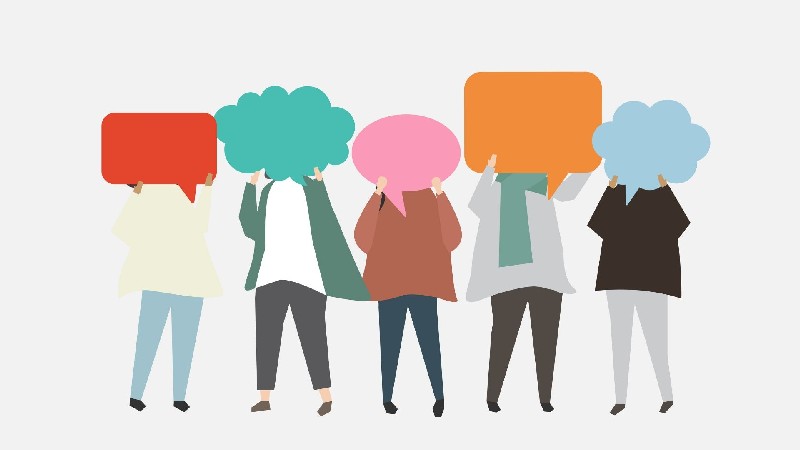What is that one thing that is making the world function? Well, it’s interpersonal skills. Imagine not communicating at all with others- then you would also imagine that no working in teams in companies, or no possession problem-solving skills, or not having leadership skills or not listening to what others tell you.
It’s impossible to give it a thought as to how the world would have been without the interpersonal communication.
The way we communicate, work in a team, follow ethics, lead our team, share our thoughts, solve problems, etc. are vital in channelizing the development around us.
Innovations are solely due to the problem-solving capabilities. We wouldn’t have had technologies come up in the recent past without problem-solving skills.
All these skills can be aggregated to one thing, and that is interpersonal skills.
In case you are curious about the interpersonal skills that work every time, this post is personalized to you. We will know everything about such skills and understand how you can develop key interpersonal skills, so you can enjoy success in your professional as well as personal life.
So, let us get started right away-
What is Interpersonal Communication?

If we start it with the Wikipedia definition of Interpersonal Communication then it can be described as a form of communication that works as a medium for the exchange of information, ideas, feelings, and thoughts between two or more people.
Our interpersonal communication skills help us in sharing our viewpoints to another person or another group of people. Besides, it is also a powerful process that we utilize for building relationships with others by-
1. Understanding the situation of the listener or audience
It is important for building relationships with others to know and be aware of the emotional, physical, social and psychological situation of our listener or audience. Interpersonal communication gives us an idea about that.
2. Communicating in the most constructive and effective manner
When it comes to communication, many other factors are central to favorable outcomes. So, our tone and how we say it are very crucial and it has to be based upon our understanding of the audience, so our ideas/information/viewpoints are right understood and not misinterpreted.
Speaker and receiver both reciprocating to each other’s intentions are important for favorable outcomes and interpersonal communication helps in this.
3. Influencing listener to listen and negotiate as per the final action needed
Though we almost cover the same thing in the second point, the key here is, if your first attempt is not giving you favorable responses and there are some disagreements, you should incorporate negotiation skills and authenticity, so your listener not only listens to you but also get influenced by your thoughts.
It will let all the members reach a common understanding which is essential for any specific action. Interpersonal communication helps in channelization of this as well.
Why is Interpersonal communication Important?
Interpersonal communication can be both verbal and non-verbal communication.
It is essential for several reasons. Be it work, or outside work, without interpersonal skills, there would be nothing. Some of the essential elements are
- Sender and receiver where the communication takes place. Ideal communication is when two people engage in a conversation. A right response is necessary from both the entities. If you find yourself going on and on while the other person is listening to you, then it cannot be considered communicating.
- A message is how effectively you communicate the information to the person. Whether you’re expressing your emotional self or confidently presenting a speech, it’s all about how well you interact. Your body language comes into the picture too in this.
- Noises when in terms of interpersonal skills are not the ones that you think of. It is whether the person is interested in listening to you or not, whether he is paying attention to your talk or not.
- Feedback is what you receive from the other person. Maybe he greeted you responded to your request. It can be anything that is collected in terms of either verbal or non-verbal. It shows whether the person is listening to you and understanding what you’re talking about.
- Context can be the place where your conversation occurs. Be it in schools, colleges, hospitals, work, neighborhood or anything. The way you communicate depends on where you are. You can’t go to a library and talk like it’s a party hall, right? So, context is all about the place.
- Channel is the medium of communication. It can be face-to-face, telephonic, video, text message or anything. Digital is the new channel in today’s world, where communication happens most of the time.
Interpersonal skills are required to build and maintain bonds with people at home or in your workplace.
You see bloggers and influencers on social media, so that’s precisely why we need to have practical interpersonal skills. They help in transforming the world to be better. The exchange of knowledge takes place.
It’s about having someone’s back when you’re in need—maintaining close relations with your boss and colleagues to have a gratifying career life. Building a project as a team and accomplishing tasks as a team. Interpersonal communication plays a role in all of these.
What Interpersonal Communication Skills we must possess?
1. Knowing the right way of being approachable and friendly
Being friendly and listening to others does not have to be getting close to people so that you can communicate with them effectively.
Having an approachable attitude is what is necessary for a work environment or anywhere. If you appear as someone with an attitude, you will lose bonds or even be unable to make one.
2. Using verbal and non-verbal communication for solving problems
How you solve problems is crucial. You come up with numerous problems at work or home, and if you don’t know how to resolve them, then it can lead to a bigger issue.
Problem-solving can also be seen as the one that is required to come up with solutions for your projects. Being a good problem, solver helps you achieve great heights.
3. Knowing the right use of body language in interpersonal communication
Effective use of body language is one thing that people observe when they first meet you. How you gesture and converse with them leaves a deep impact on them.
It shows your personality, your leadership, and it is vital to move to higher positions at your job. Without the right body language, you would be less approachable and appear as someone secure.
4. Incorporating assertiveness in your personality
Being optimistic and assertive can help at many levels. People love to be surrounded by someone with enthusiasm and who has a positive attitude.
You should be able to communicate what you feel rightly with the other person so that they don’t take advantage of you. You have to voice out your opinions and stand out of the crowd to be unique.
5. Ability to work and communicate in a team
Working with a group of people is what helps an organization function.
If you’re someone who likes working alone, it’s alright, but you need to have the skills to adapt when you’re put in a group to complete a task.
It helps you build a positive relationship, and you get to learn a lot from your fellow members too.
6. Knowing communication skills to hamper or resolve conflicts
Conflicts can be avoided to a great extent with the right interpersonal skills. You will be able to solve the problems effortlessly rather than being a part of unnecessary clashes.
It’s how you frame sentences according to your place and the people you’re talking to. You can’t use informal tone at a workplace, and the same applies when at home.
Having good listening skills is also necessary to build relationships with people. We have often experienced people who do not respect or value your talks.
7. Trust your instincts and read between the lines
When it comes to interpersonal communication, your instincts are one of the major parts that will assist you in detecting if someone is speaking the truth or faking or lying something.
For example, imaging your audience fakes a look of innocence, your instinct will tell you this to your subconscious, and you should trust your instincts. However, still having the volume of gauging other’s perceptions should be there.
That is why; reading between lines is also very crucial to interpersonal communication. Analyzing if your thoughts are still part of a discussion or it may lead to an argument is very important, and you can gauge this by reading between lines.
8. Use the right vocabulary
You are never suggested to talk in a way that your audience is not going to understand.
To let your audience engage, so you can get favorable outcomes, you should use appropriate vocabulary.
Opting for simple, day-to-day language is crucial here, plus in case you are bound to use some technical terms, you should explain them as well.
Valuing your audiences will help you in engaging them which is the basis of any form of communication, and with appropriate vocabulary, you will be able to do so.
9. Incorporate empathy in your interpersonal communication
When you empathize while communicating with your audiences, it will be quite useful in enhancing your interpersonal communication.
Many of the times, handling a conflicting situation with empathy will help you in defusing the argument adeptly. When you incorporate empathy, you will simply acknowledge the valid points of listeners.
Having pauses and using silences while having conversations with others will enable you to review a situation in a more constructive as well as productive manner.
Now, before concluding this post, let us also have a look upon some common myths of interpersonal communication, so your interpersonal skills will be foolproof-
Common Myths of Interpersonal Communication

Some of the most popular myths of interpersonal communication that you need to focus upon are-
1. Focusing just on the facts
Facts are important for a conversation, but you should not just focus on the facts. Instead, focussing upon how you make your listeners feel is more important.
2. Thinking that if you are right, you can always say so
If you are right, then you should not say it directly and belittle the one who has made any mistakes. Giving others the benefit of doubt and time to recover is more important than boasting your glory.
3. Always trying to sugar coat bad news
Being tactful with bad news will be more productive than sugar coating. Being sincere and focussing upon moving forward will help you lean on a more constructive path.
Final Thoughts about Interpersonal Communication!
Having good interpersonal skills right from college will help you career-wise and also personally. You can have strong bonds with your loved ones and also at the office.
You can even crack an interview with the right skills. Interviews are something we all dread about. But if you’ve been working with a group of people, attending events, working, doing voluntary works, then it is easy for you.
If you haven’t, then you should start as you will be able to view the world from a different angle and love your life.
Building trust and avoiding misperception is significant. Lack of listening skills can lead to major problems. You should learn to be adaptable and fit in wherever you go but not to lose your true self in that. It’s an overall development of your personality such that you would be loved by everyone; you will also have a successful life.
Your career and your relationship with everyone can only be perfect when you possess good interpersonal skills.
How significant do you consider interpersonal communication in your life?
Where do you consider interpersonal communication plays a more significant role- in business life or personal life?
Share your thoughts with us in the comment section below.
Pinky is an MBA in Marketing from the University of Mumbai. She loves helping people out in learning Marketing and sharing latest ideas and tactics for growing businesses.
